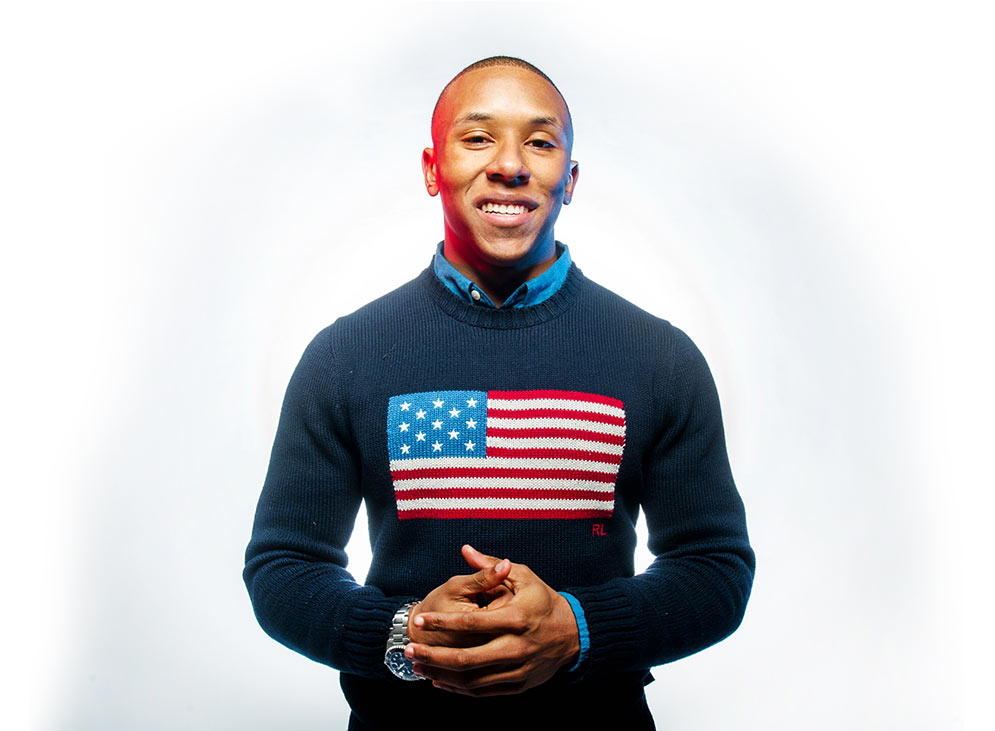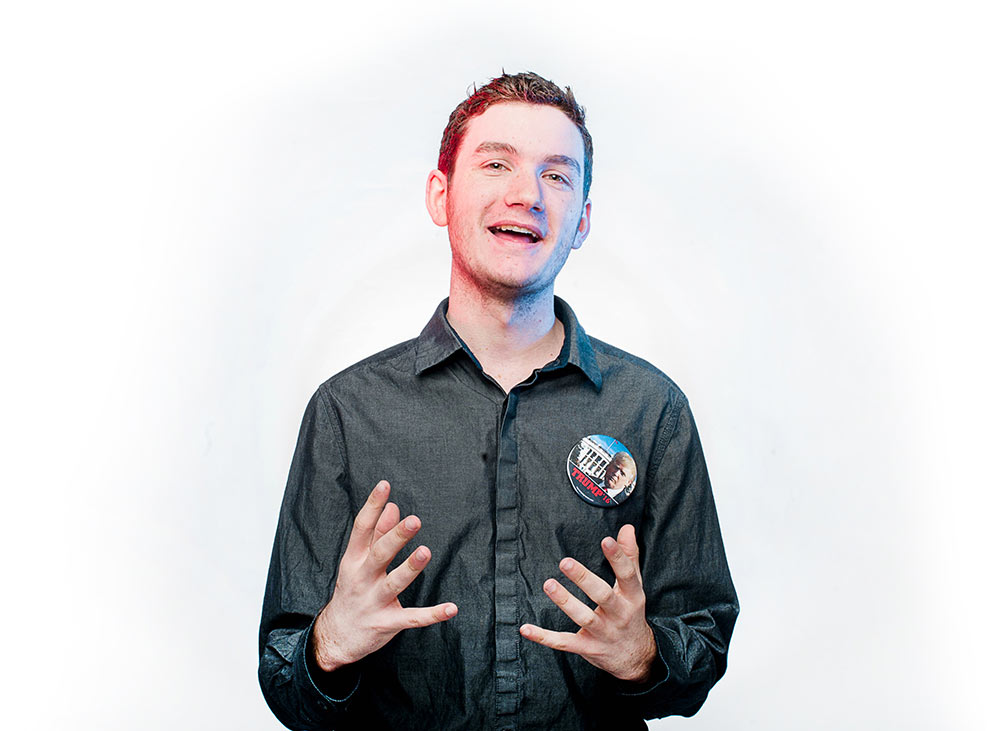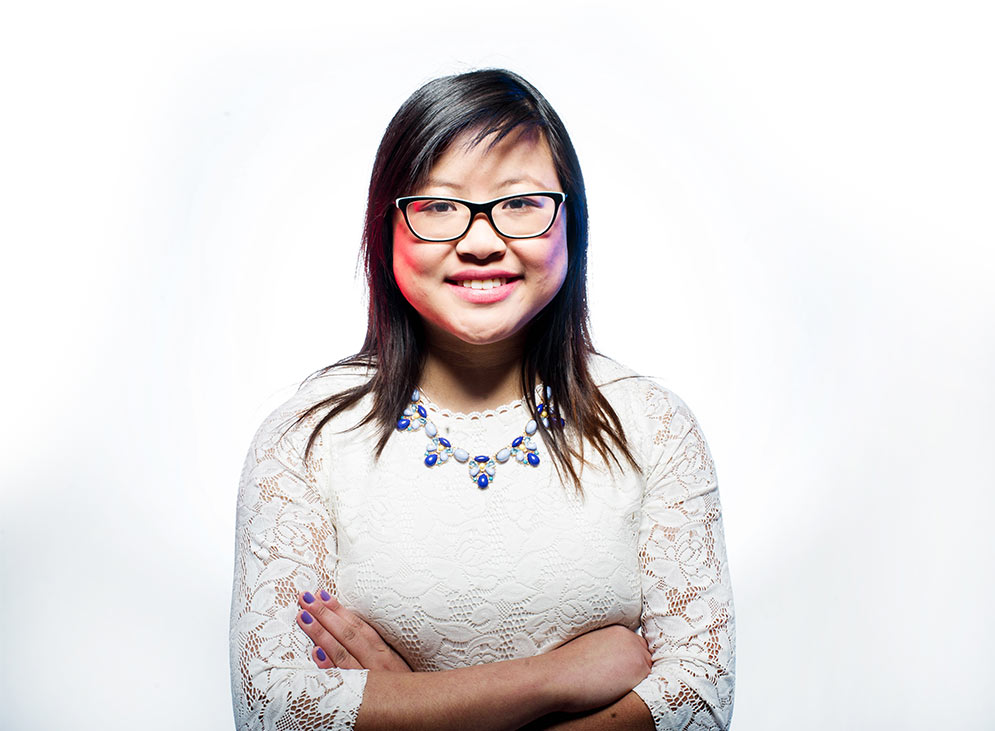YouSpeak: Who Has Your Vote?
With Super Tuesday this week, BU Today polls students about candidates, issues
One thing that can be said about this year’s presidential campaign: it has been unpredictable. Who would have imagined a year ago that former Florida governor and presumed Republican front-runner Jeb Bush would drop out just weeks into primary season, bested by a billionaire real estate developer with no political experience? Or that Hillary Clinton, long considered the Democratic front-runner, would be battling for every vote against a little-known Vermont politician with a socialist ideology? This year’s race is on course to break at least one record: with an estimated $10 billion being spent by November, it will be the most expensive in history—roughly double what was spent on the 2012 election.
The Republican race has become a three-way contest, with Donald Trump now leading the pack and Marco Rubio and Ted Cruz duking it out for second place. And Bernie Sanders is still perceived as a threat to Clinton’s White House aspirations, especially among younger voters and the most liberal wing of the Democratic Party.
By the end of this week, the landscape may be clearer. Super Tuesday, the busiest day of the primary season, sees voters in Massachusetts, Alabama, Alaska, Arkansas, Colorado, Georgia, Minnesota, Oklahoma, Tennessee, Texas, Vermont, Virginia, Wyoming, and American Samoa head to the polls or gather to caucus. The outcome could produce a clear front-runner for both parties. Or not.
For this special edition of “YouSpeak,” we asked students who they plan to vote for and why and what they see as the most important issue in this year’s presidential election.

Anastasia Kourtis (CAS’18)
Hometown: Athens, Greece (US citizen living abroad)
Supporting: Marco Rubio
Why Rubio: I really like his backstory. He’s a child of Cuban immigrants. His dad was a bartender in Las Vegas, and both his parents worked really hard. They lived paycheck to paycheck. Even though he came from such a deprived background, he was still able to make it, and that makes me believe that the American dream is actually true.
Most important issue to you in this election: I’m really interested in foreign policy. One of the main issues that Rubio addresses is the fight against ISIS. What he wants to do is not only have the United States fight ISIS, but also help create a Sunni Muslim, Arab, Syrian, and Kurdish force that will be able to fight ISIS. I think that’s really important, because it’s basically the people in Syria that are experiencing the terror of ISIS, so I really like that aspect of his policy, that not only the United States, but also the people who are actually experiencing the terror, would fight ISIS. And if we all work together and bring more nations into the fight, I think we could probably eradicate them.

Claire Tran (COM’19)
Hometown: Sacramento, Calif.
Supporting: Bernie Sanders
Why Sanders: Bernie Sanders accepts immigrants. He really sees them as human beings, people with dreams, people who just want to live freely and accept American values. His plan for immigration reform calls for making the visa system more efficient so people can come to the United States more easily—they won’t have to wait years and years to become citizens. It calls for providing more resources like education training. And I think that’s really important, not only to help immigrants come here more easily, but to help them adapt to the American lifestyle.
With Sanders, you can look at his political history and see that he’s been fighting for the same things for pretty much as long as he could participate. So if he becomes president, he will most likely continue to fight for those things.
Most important issue to you in this election: Immigration. Take, for example, the Syrian refugee crisis. I hear their stories, I see the photos, and it just reminds me of my own family, who immigrated here from Vietnam. Those people are literally my parents 40 years earlier, trying to find a better place in America. Thankfully, my parents had a relative already living in America, so it was easy for them to get sponsored, but often that process can take years, and the people in Syria shouldn’t have to stay there that long. My parents could not stay in Vietnam any longer.

Justin C. Flynn (Questrom’17)
Hometown: Rochester Hills, Mich.
Supporting: Hillary Clinton
Why Clinton: To me she represents the most obvious and direct extension of the Obama administration. I think Bernie Sanders is great. He speaks to a lot of emotions that I feel as an African American. I will definitely vote for Bernie if he wins the Democratic nomination. However, I don’t think Bernie is the best candidate to negotiate with Republican leaders, which worries me. There’s actually this dichotomy within the African American community now, where you’ve got this split going on, with some people saying, “Well, Bernie Sanders is speaking for us,” and others saying, “Well, you know, if we want to continue what President Obama’s been doing, then we should vote with Hillary.” In the end, I feel like Hillary’s more balanced temperament may actually lead, through incremental policy changes, to the country moving in a direction that’s better for all people in terms of race and religion.
Most important issue to you in this election: I would say criminal justice, law enforcement, Social Security. There are too many people in jail, and they are there for too long. Especially for nonviolent crimes. And there’s a strong correlation between how long you’re in jail, how often you’re policed, and the color of your skin. That’s something that I take kind of personally. Black families especially have been torn apart by long sentences for nonviolent crimes and over-policing in our communities. And that’s something we need to change in this country, because people need a chance, after a nonviolent crime, to reset their life, to be treated as people.

Andrew Gomar (Questrom’18)
Hometown: Weston, Conn.
Supporting: Donald Trump
Why Trump: When this race started everyone assumed that it would be Bush versus Clinton. And I thought, that’s just so silly. America is not run by dynasties. So when Trump announced, I thought it was like a gift from God. He’s one of the world’s best businessmen, and he makes amazing deals. His reputation is for win-win deals, where everybody wins. And I think that’s going to be really important in the context of Congress and in the context of foreign policy. Trump is his own man, he’s not doing it for the money, he’s not doing it for the lobbyists, he’s not doing it because his family is egging him on. I believe he’s doing this for the American people.
Core Republicans’ reaction if Trump is nominated: I think Trump is actually more of an establishment-style candidate than he gets credit for. I mean, he’s not Ted Cruz. Cruz can’t get along with anybody. Rubio’s obviously the most establishment, but the guy’s like a robot. Trump is the centrist between those two. And I think in the general election, he’ll change his strategy to appeal more to the general electorate. I also know that the more establishment Republicans would rather die than let Clinton or Sanders in the White House.

Madeline McGill (CAS’16)
Hometown: Arlington, Va.
Supporting: Hillary Clinton
Why Clinton: I’m not voting for Hillary because she’s a woman, but I’m not going to pretend that that’s not a big issue for me. As someone who’s interested in politics, seeing a woman who is as qualified as Hillary is, who has accomplished as much as she has—that’s a huge issue for me. It’s great that women feel that they don’t need to support a woman in office, that we can still have progress for women in the workplace without supporting a woman candidate, but it’s a big deal for me and I wish it was a bigger deal for more people my age.
To me, Hillary speaks more as a national leader. I saw both her and Bernie speak in New Hampshire, and Hillary spoke about the opioid crisis and what her plan was to target that crisis and help the families of New Hampshire. And I was incredibly moved. And then Bernie came on stage and talked about a political revolution. But he didn’t talk about New Hampshire. And that was kind of the first falling out of love that I had with him as a candidate.
But Bernie, for all his faults—and this goes for Trump too, by the way—both are bringing a lot of people to the conversation that have never been a part of it before. A lot of young people, a lot of first-time voters, a lot of people that have kind of been on the fringes of politics are now at the center of the discourse. And even though Sanders isn’t my candidate, you have to respect that.

Cristian Morales (ENG’16)
Hometown: El Paso, Tex.
Supporting: Bernie Sanders
Why Sanders: With many politicians on both sides of the aisle, they know that they need young votes, but they’ll try to pander. Like, they’ll create Instagram accounts, and they’ll make YouTube videos. Bernie recognizes that what you need to do is to treat young people like the adults they are, like intelligent human beings who can tell right from wrong, who can tell pandering from being invested in our causes, in what we care about. We respond to that.
My parents are conservative Christian Republicans from Texas, and they love Bernie. They have never voted for a Democrat in their lives. It’s always been a Republican. They told me, if it was a general election between Trump or Cruz and Bernie, they would vote for Bernie. I’ve heard that from my aunts and my uncles, from many, many of my family members, and this in a conservative Texas town.

Tammy Chen (SAR’17)
Hometown: Canton, Mass.
Supporting: Marco Rubio
Why Rubio: He’s a lot more moderate and that’s what I like. I think his views match what the average Republican feels.
Most important issue to you in this election: Health care. I’ve taken a lot of classes on the US health care system, so I see the issues with it, and I’m looking for a candidate who has better solutions, because right now health care is a complete mess. The Affordable Care Act only expands insurance coverage, which isn’t the solution we need. I like how Rubio wants to repeal the Affordable Care Act and replace it with a more consumer-driven model to lower costs. In America, there are so many scientific and medical innovations, I think it’s better for the patient as a consumer to have choices in health care.

Katarina Rusinas (COM’16)
Hometown: Garden Grove, Calif.
Supporting: Hillary Clinton
Why Clinton: I choose to support Hillary because, first of all, I still think we need a woman president. That would be important not just for us, but would be like a symbol to the world. I think a lot of other countries look to the United States and say, “Why haven’t they had a woman president?”
My story about supporting Hillary starts with my mom. She was always a huge Hillary supporter and then when I started wanting to get involved in the campaign, I asked her why and I realized that I was on SCHIP, which is a health insurance program that actually gave health insurance to eight million kids when it was implemented in the ’90s. Hillary was really pushing for this program while in the White House as First Lady. So that kind of cemented it for me. And as I went further along in the campaign, almost every person I met was personally affected by her in their life in some way.
Most important issue to you in this election: Paying for college. I think all of my friends, and myself, are walking away with loans and are struggling to pay for college. That’s another reason why I support Hillary Clinton. In the very beginning, she came out with her college compact. It’s really comprehensive and it’s really doable.

Michael Whitesides (CAS’17)
Hometown: Marietta, Ga.
Supporting: Bernie Sanders
Why Sanders: One reason I’m excited about Bernie is his background. He’s the son of Polish immigrants who came here before the Holocaust. But he’s a secular Jew, just like me, just like a lot of young Jews. And he doesn’t represent this new era of Jews who are pretty much culturally white because we have a lot of the same privileges as white Americans—he’s the son of immigrants and to me that is really exciting. I appreciate that he doesn’t talk about it a lot, but it’s exciting, because as Jews we’re this very small minority. He’s like a Jewish Obama in that way.
Most important issue to you in this election: Universal health care. My dad is an oral surgeon and has his own private practice in Marietta, Ga. I would do these free clinics with him when I was a kid, and we’d help give basic dental care to people that didn’t have health insurance. There’d be thousands of people at these clinics in the middle of nowhere, so I saw that, but I also see the aspect of doctors dealing with insurance companies and how much they can really get screwed by it. I think, personally, health care is a human right, and I don’t see why if almost every other industrialized country can do it, we can’t figure out some way to do it.

Kobe Yank-Jacobs (CAS’18)
Hometown: Newport Beach, Calif.
Supporting: Hillary Clinton
Most important issue to you in this election and why Clinton can best address it: Number one, when it comes to the presidency: foreign policy. I realize I have a bias because I’m an international relations major. The way America conducts itself in the world, being a global leader that affects every other nation, is by far the most important thing. Also, if you look at the distribution of power in our government, that’s also where the president actually does have a lot of leeway to act without Congress. Hillary Clinton obviously is more well-versed in foreign policy. It actually makes me cringe to watch Bernie Sanders talk about foreign policy.
Who you’d like to see run against Clinton: I know a lot of Democratic voters are rooting for the worst possible candidate to be nominated by the Republicans, obviously because they want a better chance in the general election. I wish the Republican Party would nominate John Kasich, because ultimately I want what’s in the best interest of our politics. Unfortunately, you have to realize that at some point Republicans are going to take the White House again. And given the current districting, they’re going to have at least half of Congress under their control. So what I’d hope for is a moderation of their politics. Because as someone who’s really invested in the quality of our political discourse, I just want to see both parties moderate, not in the sense that they give up on their ideals, but in the sense that they don’t feel the need to continually push the extremes in order to rile up the base.
“YouSpeak” typically appears on Mondays. If you have a suggestion for a topic, leave it in the Comment section below.











Comments & Discussion
Boston University moderates comments to facilitate an informed, substantive, civil conversation. Abusive, profane, self-promotional, misleading, incoherent or off-topic comments will be rejected. Moderators are staffed during regular business hours (EST) and can only accept comments written in English. Statistics or facts must include a citation or a link to the citation.